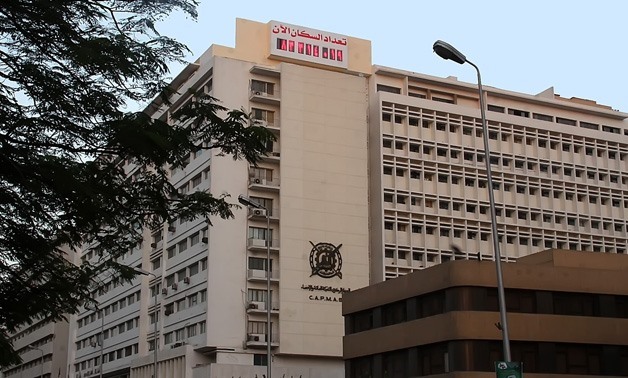
CAPMAS - File Photo
CAIRO – 11 July 2017: Egypt’s inflation forecast to keep climbing over the coming months to fall sharply by the end of 2017, despite stabilizing on a monthly level in June, economists said Monday.
The annual overall inflation stood stable at 30.9 percent in June, despite going up slightly on a monthly level to hit 29.8 percent, up from 29.7 percent registered in May, state-statistical body CAPMAS announced Monday.
“We do not expect this (rate) to last for the upcoming months,” Mubasher International economist Esraa Ahmed said in a research note Monday, stating the stabilization of rates this month is just a preparation of the anticipated inflation shooting.
Given the new fuel and electricity price hikes and one percent increase in value-added tax (VAT), the inflation is expected to hit an average of 35 percent in the first quarter of fiscal year 2017/18, Ahmed added.
June’s inflation measures did not comprise the recently-imposed fuel price hikes, introduced on June 29. This prompted London-based research firm Capital Economics to expect further rise in inflation rates over the next few months.
“Fuel hikes expected to add 1.5 percent to the headline inflation in July,” the company’s Middle East Economist Jason Tuvey said in the research note.
The Government is optimistic that inflation would take four months to stabilize, Minister of Finance Amr El-Garhy told Reuters on Monday, expecting it to be between 1-1.25 percent.
The monthly consumer price index (CPI) eased to 0.8 percent in June from 1.6 percent in May, for the fifth month in a row, according to statistics released by the Central Agency for Public Mobilization and Statistics (CAPMAS) on Monday.
Pharos Holding’s analyst Ramy Oraby attributed the decline in monthly inflation rates to “seasonal” patterns. “We estimate the seasonally adjusted monthly rate to be around 1.1 percent MoM in June, which is slightly below May’s monthly inflation rate,” he said.
Oraby predicts the annual inflation rate in Q1 FY 2017/18 to be around 33 percent.
Recently-introduced economic reform measures would cause a market shock for a period of three months, he explained.
The new electricity tariffs to affect inflation as it came at similar magnitude last year, Capital Economics Tuvey said, predicting inflation to start dwindling by the end of 2017, when the effect of the Egyptian pound flotation starts to ease.
Tuvey expected interest rates to be reconsidered after that, expecting the overnight deposit rate to be cut to 12.75 percent by the end of 2018.
“We estimate that this added 0.6 percent to the headline rate; however, this was partially offset by weaker inflation in other categories,” Tuvey said.
Breakdown of the CAPMAS showed that the monthly inflation increase was fueled by 29.7 year-on-year (YoY) in the clothing sector, up from 19.1 YoY hike in the previous month. The MoM increase was 10.4 percent.
In efforts to curb inflation, the Central Bank of Egypt (CBE) raised interest rates by 200 basis points on Thursday, hoping the “temporary” measure to succeed in limiting spending in the market.

Comments
Leave a Comment